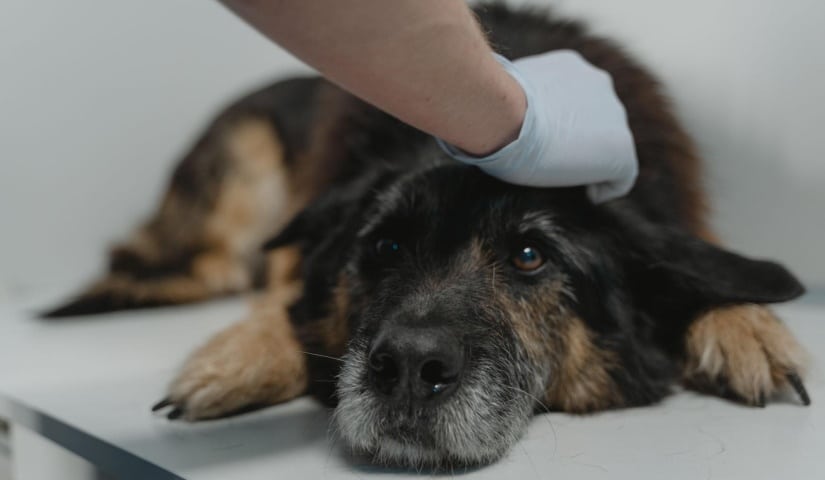If you have adopted a pet into your life and family, you want the best for your furry, feathered, or scaled family member. This includes providing your pet with affection, a place to sleep, the possibility of physical exercise, fresh water, and food. But being fed is not necessarily synonymous with being nourished and this can be the beginning of numerous problems. “You are what you eat” refers to pets as well as people.
Malnourished pets do not take in a sufficient number of the essential nutrients that are necessary for survival. This may be because of a disease or a serious injury, just as it may be due to environmental conditions such as drought or flooding where food is scarce. Malnutrition can also be the result of neglect.
Inadequate or poor nutrition is as much a problem for our pets as it is for us, and can lead to numerous health issues such as:
- Allergies
- Emaciation
- Fur loss
- Immune disorders
- Nerve disorders
- Obesity
- Rickets
Health issues such as these can be the result of too little food or food that is of such low quality that it cannot supply adequate essential nutrients to your pet, regardless of the species. If a pet exhibits the symptoms of malnutrition, an immediate evaluation by a veterinarian is necessary to design a treatment program. Proper nutrition is an essential component of your pet’s overall well-being and malnutrition can lead to a lower life expectancy.
Malnutrition is not only a problem for physical well-being but can also lead to behavioral problems including aggression, anxiety, and nervousness or skittishness.
Why Nutrition Is So Important for Pets
Proper nutrition is what fuels proper growth and development in an animal while reinforcing the immune system to fight infection and disease, as well as sustaining the reproductive cycle. Nutrients in a pet’s diet serve numerous purposes including:
- Building muscles and maintaining muscle tone
- Bone development and maintenance
- The health of skin and fur or feathers
- Muscle contraction and nerve conduction
- Digestion and waste elimination
- The immune system fighting disease and infection
- Energy
Symptoms of Poor Nutrition
There are several signs of poor nutrition that are common and worth watching for. If your pet exhibits any of these symptoms, it may be a good idea to check in with your vet for a complete examination to eliminate the possibility of underlying health issues.
-
Low Energy
When pets are not receiving adequate nutrition, it’s only a question of time before they become lethargic. This is one of the easiest signs to spot. Before you panic, try adjusting your pet’s diet to see if it makes a difference.
-
Food Allergies and Intolerances
This is another sign of a nutrition problem that is relatively easy to spot. It may appear in the form of dry skin, itchy skin, a dull coat, fur loss, weight loss, weight gain, ear infections, or digestive tract issues such as diarrhea, loose stools, or constipation. Many commercial pet foods contain ingredients that cats and dogs are unable to digest. Similarly, certain foods, like nuts, are high in fat. While not all are toxic, be careful with how many non-toxic nuts you give to dogs, as this can lead to obesity and pancreatic issues.
Even food labels can be confusing to read. Filler ingredients, and often grains, in particular, can create digestive tract problems. Meat ingredients and where they are sourced are important. Keep in mind that many animal parts that are not deemed appropriate for human consumption, may end up in pet food, hence allergies and food intolerances.
-
Undesirable Behavior
If your pet is not receiving essential nutrients, this can provoke behavioral issues. Dogs and cats may eat feces if they are undernourished, or high amounts of carbohydrates in commercial food may cause a spike in sugar levels resulting in hyperactivity.

Health Problems
When a pet does not take in essential nutrients and instead ingests harmful ingredients, especially for an extended period, expect to see the development of more serious health issues. These may include:
-
Anorexia
Anorexia is caused by a pet refusing to eat. It can be related to nutritional problems as well as pain in the stomach or mouth which causes a pet to avoid eating.
-
Congestive heart failure
A pet may be at risk of developing this disease if a diet is high in salt content.
-
Diabetes
If commercial pet foods contain sugar, this can increase the risk of diabetes developing.
-
Digestion issues
Malnutrition due to a poor diet can irritate the digestive tract and stomach leading to diarrhea, gas, loose stools, and vomiting. If a pet cannot keep in food and absorb essential nutrients such as vitamins and minerals, this will lead to malnutrition.
-
Growth Disorders
These can appear in bone formation and joints if a pet has received too little or too much calcium in its diet.
-
Kidney disease
Prevalent in felines, cats placed on a mostly kibble dry food diet are at risk for kidney problems due to a lack of sufficient moisture. They are also at risk when fed salty foods, especially from dinner leftovers.
-
Obesity
Obesity will cause the same health issues in a pet as in humans. Weight gain is generally caused by excessive feeding, but a diet heavy in carbs, sugars, or synthetic additives can also contribute to obesity.
-
Pancreatitis
A diet high in fat can lead to pancreatitis which is an inflammation of the pancreas.
-
Periodontal Disease
Dental issues are generally caused by a buildup of plaque. This can be helped by either feeding a raw food diet or by brushing teeth regularly, and by providing a diet with sufficient vitamins.
-
Weight loss
Loss of weight can inevitably be traced back to an unhealthy or inadequate diet. If your pet is losing weight, make an appointment with your vet to rule out other serious illnesses.
Common Causes of Poor Pet Nutrition
Food quality alone is not the only cause of poor nutrition in pets. Consider these common causes that may be afflicting your pet.
Food Quality
If the food you feed your pet is low quality it will most likely be deficient in essential vitamins and minerals. Poor quality food can cause irreversible damage when used long-term.
Medical Conditions or Diseases
Diseases such as inflammatory bowel disease, or gastrointestinal tumors among others prevent adequate absorption of essential nutrients.
Overeating
Malnutrition is not only caused by a lack of food, but also by too much of it. Overeating will inevitably lead to obesity with a whole slew of problems attached, but excessive quantities of certain elements like phosphorus or vitamin A can cause systemic imbalances which in turn create other problems.
Parasites
Worms can cause malnutrition by interfering with nutrient absorption. Common parasites to consider include tapeworms and roundworms among others.
Scarcity of Food
A pet that does not receive an adequate supply of food will lose weight and consequently have a weakened immune system. It will suffer from lethargy and encounter difficulty in fighting off diseases and infections. This condition will eventually lead to starvation and death.
Veterinary Diagnosis of Inadequate Nutrition
Any suspicious symptom of inadequate nutrition must be referred to your veterinarian for an accurate diagnosis. A complete examination with blood and urine workups will enable your vet to determine if your pet is over or underweight, is suffering from parasites, and to identify any underlying health issues for treatment. Should diseases or health issues be eliminated from consideration, your veterinarian will evaluate a pet’s diet and pet activity levels to develop a program for treatment. Supplements may be recommended as well as a complete change in the food that you are feeding your pet
It is particularly important in a case of inadequate pet nutrition that your veterinarian is your guide.
As Dr. Lisa Freeman, Veterinary Nutritionist, Professor of Clinical Nutrition at Tufts Cummings School of Veterinary Medicine, stated on Steve Dale’s Pet World radio show about Pet Food Misinformation “There’s so much misinformation…and this can be downright dangerous….It’s so important that any information you get from the internet about pet nutrition be discussed with your veterinarian for the individual needs of your pet.”
In other words, what might be appropriate for one pet, may not be for yours.

All Things Considered
The importance of a high-quality pet diet cannot be understated. With adequate nutrition, your pet will live a healthier, happier, and longer life. What’s more, what you spend on food, you’ll save by not having to visit your veterinarian as often.
